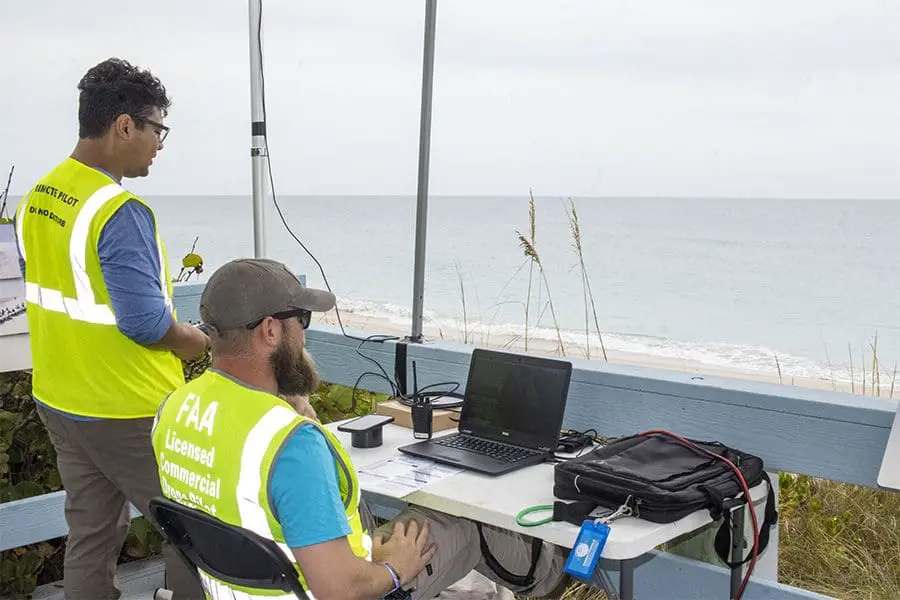

As the drone flies over the beach, the crew tracks its location.
We’re getting closer to our goal of expanding our knowledge of sea turtle behaviors in their natural range! A group of representatives from several organizations recently gathered at the Barrier Island Sanctuary in Melbourne Beach to test out special technology being developed through our Turtle Tech initiative.
Turtle Tech’s goal is to use unmanned flights to identify sea turtles in the ocean and study their migratory and reproductive habits, information that could be key to protecting sea turtles.
In June, Embry-Riddle Aeronautical University students and faculty met with representatives of Northrop Grumman and Brevard Zoo in Melbourne Beach to run a flight simulation over the ocean using a drone equipped with a specially designed aircraft system.
The team can now fly their drone farther offshore thanks to a first-ever “beyond visual line of sight” waiver from the U.S. Federal Aviation Administration (FAA). The aircraft system, which was built by Censys Technologies Corporation, is equipped with sensors, cameras and a collision avoidance system to help it fly offshore safely.
During this series of test flights, we were able to fly the drone at a higher altitude as to not disturb sea turtles. Researchers are currently in the process of analyzing the results of these flights.
This is the latest step in this initiative focused on the scientific advancement of sea turtle knowledge. Turtle Tech was kicked off in 2018 after we received a generous grant from the Northrop Grumman Foundation. As a part of Turtle Tech, Zoo educators and Northrop Grumman engineers have worked with two area high schools and several local universities on a STEM component that integrates engineering, science, and marine science curriculum.
Each component of Turtle Tech has its own engineering team, from the aerial drone to the automated sea turtle image recognition system that will make identifying sea turtles simple.
Florida is home to five of the seven sea turtle species found worldwide. Loggerhead, green, leatherback, Kemp’s Ridley and Hawksbill sea turtles can all be found in the waters on our shorelines, and females of all species come onto land during nesting season to lay their eggs. Because Brevard County is such an important nesting area for these endangered species, our Zoo opened up the Sea Turtle Healing Center back in 2014 to treat, rehabilitate and release sick and injured patients.
We are excited to continue this commitment to sea turtles through our Turtle Tech project, and hope that this incredible technology will further local sea turtle conservation and save these precious species.
Brevard Zoo is an independent, not-for-profit organization that receives no recurring government funding for our operating costs. Your generous support enables us to continue to serve our community and continue our vital animal wellness, education and conservation programs.